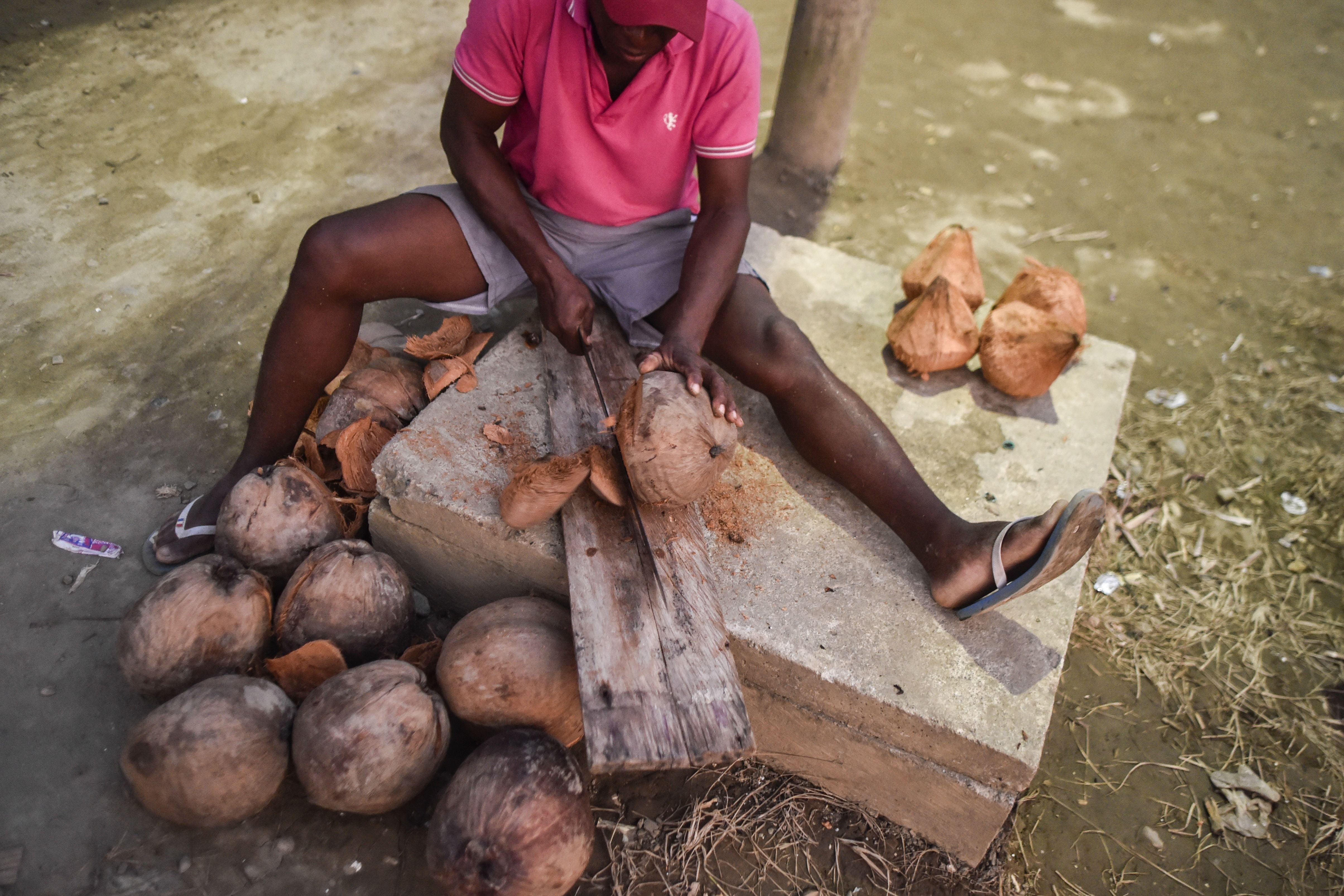Nearly 20,000 coconuts full of liquid cocaine found by Colombian officials in shipment headed for Italy
Officials say 504 canvas bags containing 19,780 export-type coconuts found containing liquid cocaine

Your support helps us to tell the story
From reproductive rights to climate change to Big Tech, The Independent is on the ground when the story is developing. Whether it's investigating the financials of Elon Musk's pro-Trump PAC or producing our latest documentary, 'The A Word', which shines a light on the American women fighting for reproductive rights, we know how important it is to parse out the facts from the messaging.
At such a critical moment in US history, we need reporters on the ground. Your donation allows us to keep sending journalists to speak to both sides of the story.
The Independent is trusted by Americans across the entire political spectrum. And unlike many other quality news outlets, we choose not to lock Americans out of our reporting and analysis with paywalls. We believe quality journalism should be available to everyone, paid for by those who can afford it.
Your support makes all the difference.Nearly 20,000 coconuts filled with liquid cocaine were found by authorities in Colombia inside a shipment bound for Italy.
The shipment was found through a coordinated investigation by the Attorney General’s Office’s Specialised Directorate against Drug Trafficking and the National Police’s Anti-Narcotics Directorate, according to a press release issued on Thursday by the Colombian National Prosecutor’s Office.
The shipment was to leave the port of Cartagena in Bolívar for Genoa in Italy.
Officials said 504 canvas bags containing 19,780 export-type coconuts were found containing liquid cocaine.
“Upon inspection, it was established that the water in the tropical fruit had been exchanged for liquid cocaine,” the press release said in Spanish.
The coconuts were then sent to a specialised laboratory to establish the exact quantity of the drug that was injected into the coconuts.
The prosecutor’s office said investigations were underway to determine the persons responsible as well as the location where the coconuts were loaded.
Italian authorities will also be notified about the drug trafficking structure that was meant to receive the shipment.
This is not the first time coconuts and other fruits and vegetables have been used to smuggle drugs.
In 2017, authorities at Madrid airport discovered a shipment of fresh coconuts which had been injected with a total of 60 grams of liquid cocaine, reported Vice.
A year later, police in Madrid found more than 65kg of cocaine stashed inside pineapples at a food market.
In 2016, authorities in Hong Kong found a shipment of yellow dragonfruit that had been injected with liquid cocaine.
The fruit, from Colombia via London, had been hollowed out, filled with the cocaine liquid, then sealed with glue.
Just weeks ago, British authorities found cocaine inside tins of baked beans and coconut milk. In 2020, cocaine worth £4m was found hidden in vegetables or suspended in liquid in freight from flights at Gatwick Airport.
Join our commenting forum
Join thought-provoking conversations, follow other Independent readers and see their replies
Comments